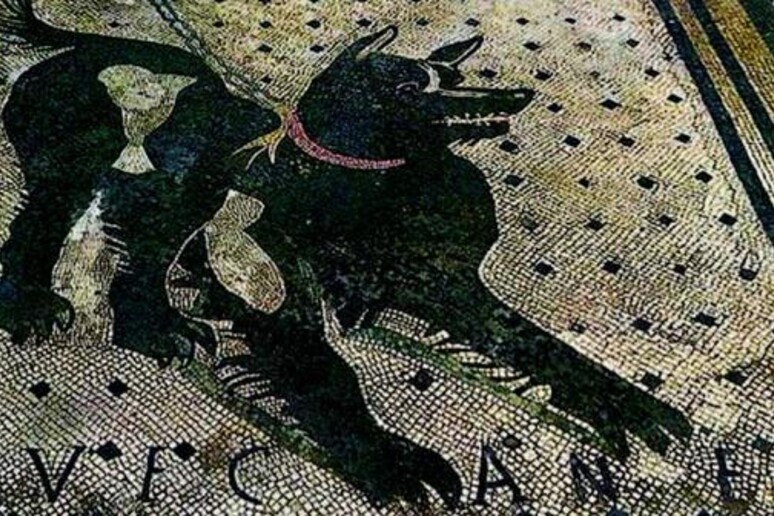He is one of the world's most
famous dogs, the snarling, black-and-white mosaic canine and
protector of the Pompeii archaeological site.
Indeed, with his black hair, curled form, and bared teeth,
the ancient canine has stood ready for almost 2,000 years to
discourage intruders from setting foot in the Domus of the
Tragic Poet, supported by the famous inscription 'Cave Canem' or
'Beware of the Dog'.
Now, this universal symbol of the city that was preserved
under the ash of Mt. Vesuvius in 79 AD has been restored and
returned to the public eye in the archaeological remains of
Pompeii.
Years of rain, mud, dirt and neglect were gradually cleaned
away to bring him back to public viewing just in time for the
dog days at the end of July.
The work on the mosaic canine is just one in a series of
measures aimed at restoring and protecting Pompeii, a UNESCO
World Heritage Site, for future generations, said Culture
Minister Dario Franceschini.
In a post on his Twitter feed, he wrote: "Offered to the
public the splendid new staging of Cave Canem".
"(At) #Pompei, every day a proud step forward," wrote the
minister.
The canine mosaic is now protected beneath a transparent
cover designed to allow full public viewing of the mosaic mutt,
with his great sense of movement as well as the realism and
attention to detail that has made it one of the world's best
known of the Pompeian masterpieces.
Other restored works as well as extended tourist routes
through the archaeological site should also be offered soon,
officials suggested.
Work has been continuing at Pompeii, which for decades was
neglected and even plundered due to slack security and poor
protection.
At some points, the United Nations even threatened to
withdraw its UNESCO World Heritage Site designation unless
adequate money was invested to restore and protect Pompeii.
But, slowly things seem to be turning around.
In March Pompeii's largest house - Villa dei Misteri,
famous for its frescoes of the cult of Bacchus - reopened after
a two-year restoration and a three-month closure for work on its
paving.
"We have behind us a year of extraordinary work,"
Franceschini said at that time.
"We have closed three work sites while another 13 have been
opened, nine contracts have been started and we have hired 85
people".
Almost precisely one year earlier, Franceschini
pledged the Italian government would catch up on delays in
restoring the Pompeii archaeological site and treat completing
the ambitious 105-million-euro Great Pompeii Project as a
"national challenge".
"The challenge of Pompeii is a challenge for the nation,"
Franceschini said, reiterating the importance of the Great
Pompeii Project, aimed at safeguarding the unique site.
The European Commission, involved in funding the project,
has insisted that the restoration work must be completed by the
end of 2015.
There is some urgency.
In April 2014, heavy rains led to several reports of
collapsed walls at the Pompeii site, soon after UNESCO warnings
that the miraculously preserved ancient city could "completely
fall apart" and lose its world heritage status unless urgent
action was taken.
ALL RIGHTS RESERVED © Copyright ANSA











